
Jawaharlal Nehru was an Indian anti-colonial nationalist, secular humanist, social democrat, author and statesman who was a central figure in India during the middle of the 20th century. Nehru was second only to Mahatma Gandhi in leading the Indian nationalist movement in the 1930s and 1940s. Upon India's independence from Britain in 1947, he served as the country's first prime minister for 16 years. Nehru championed parliamentary democracy, secularism, science and technology during the 1950s, powerfully influencing India's arc as a modern nation. In international affairs, he is well-known as one of the Founders of the Non-aligned Movement and, concomitantly, for steering India clear of the two blocs of the Cold War. A coveted author, the books he wrote in prison, such as Letters from a Father to His Daughter (1929), An Autobiography (1936) and The Discovery of India (1946), have been read and deliberated upon around the world.

A princely state was a nominally sovereign entity of the British Indian Empire that was not directly governed by the British, but rather by an Indian ruler under a form of indirect rule, subject to a subsidiary alliance and the suzerainty or paramountcy of the British crown.
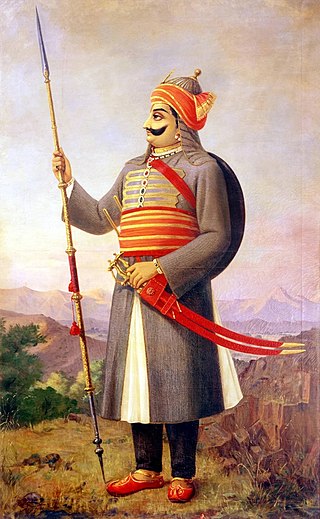
Pratap Singh I, popularly known as Maharana Pratap, was king of the Kingdom of Mewar, in north-western India in the present-day state of Rajasthan, from 1572 until his death in 1597. He is notable for leading the Rajput resistance against the expansionist policy of the Mughal Emperor Akbar including the Battle of Haldighati and the Battle of Dewair.
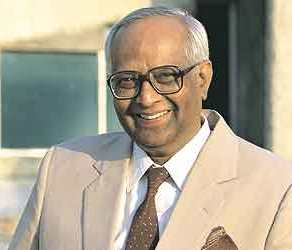
Jyotindra Nath Dixit was an Indian diplomat, who served as Foreign Secretary (1991–1994), the top bureaucrat in the Ministry of External Affairs. At the time of his death, he was the National Security Adviser to the Prime Minister Manmohan Singh and is mostly remembered for his role as a negotiator in disputes with Pakistan and China.

Irfan Habib is an Indian historian of ancient and medieval India, following the methodology of Marxist historiography in his contributions to economic history. He is known for his strong stance against Hindutva and Islamic fundamentalism. He has authored a number of books, notably the Agrarian System of Mughal India, 1556–1707, an Atlas of the Mughal Empire: Political and Economic Maps with Detailed Notes, and an Atlas of Ancient Indian History. As the general editor, he is also the driving force behind the A People's History of India series, volumes of which continue to be released.

Muhammad Bairam Khan, commonly known as Bairam Khan or Bayram Khan was an important military commander, and later commander-in-chief of the Mughal army, a powerful statesman and regent at the court of the Mughal Emperors, Humayun and Akbar. He was also the guardian, chief mentor, adviser, teacher and the most trusted ally of Akbar. Akbar honoured him as Khan-i-Khanan, which means "King of Kings". Bairam was originally called Bairam "Beg", but later became honoured as Khan. Bairam Khan was an aggressive general who was determined to restore Mughal authority in India.
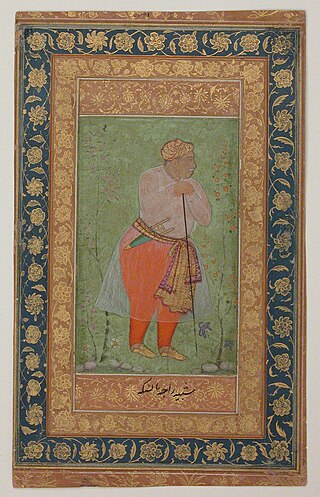
RajaMan Singh I was the 24th Maharaja of Kingdom of Amber from 1589 to 1614. He also served as the Subahdar of Bengal for three terms from 1595 to 1606 and the Subahdar of Kabul from 1585 to 1586. He served in the Mughal Army under Emperor Akbar. Man Singh fought sixty-seven important battles in Kabul, Balkh, Bukhara, Bengal and Central and Southern India. He was well versed in the battle tactics of both the Rajputs as well as the Mughals. He is commonly considered to be one of the Navaratnas, or the nine (nava) gems (ratna) of the royal court of Akbar.

Khanzada Mirza Khan Abdul Rahim, popularly known as simply Rahim and titled Khan-i-Khanan, was a poet who lived in India during the rule of Mughal emperor Akbar, who was Rahim's mentor. He was one of the nine important ministers (dewan) in Akbar's court, known as the Navaratnas. Rahim was known for his Hindustani dohe (couplets) and his books on astrology.
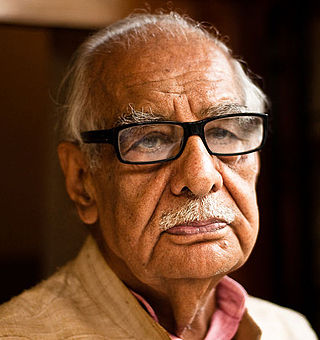
Kuldip Nayar was an Indian journalist, syndicated columnist, human rights activist, author and former High Commissioner of India to the United Kingdom noted for his long career as a left-wing political commentator. He was also nominated as a member of the upper house of the Indian Parliament in 1997.

The Asian Relations Conference was an international conference that took place in New Delhi from 23 March to 2 April, 1947. Organized by the Indian Council of World Affairs (ICWA), the Conference was hosted by Jawaharlal Nehru, then the Vice-President of the interim Viceroy's Executive Council, and presided by Sarojini Naidu. Its goal was to promote cultural, intellectual and social exchange between Asian countries.

Satish Chandra was an Indian historian whose main area of specialisation was medieval Indian history.
The Madrasah-i Rahimiyah is an Islamic seminary located in Delhi, India. It was founded by Shah Abdur Rahim, the father of Shah Waliullah Dehlawi, during the reign of Mughal Emperor Aurangzeb. After the death of Shah Abdur Rahim in 1718 Shah Waliullah started teaching at the Madrasah. It became a leading institute of Islamic learning and was acknowledged as the most influential seminary in the Indian subcontinent. Later, when Shah Wali Allah died, his sons Shah Abdul Aziz, Shah Rafi and Shah Abdul Qader began teaching here, with Abdul Aziz becoming its principal. Following the death of Abdul Aziz, the leadership of the Madrasah passed on to his grandson Shah Muhammad Ishaq.
Shah Abdur Rahim was an Islamic scholar and a writer who assisted in the compilation of Fatawa-e-Alamgiri, the voluminous code of Islamic law. He was the father of the Muslim philosopher Shah Waliullah Dehlawi. He became a disciple of Khwaja Khurd son of Khawaja Baqi Billah a revered Sufi of Delhi. He established Madrasa Rahimiyya in Delhi, a theological college which later played a part in the religious emancipation of Muslim India and became the breeding ground of religious reformers and mujahideen like Shah Waliullah and Shah Abdul Aziz.

The 2011 South Asian Football Federation Championship, sponsored by Karbonn Mobiles and officially named Karbonn SAFF Championship 2011, was the 9th tournament of the SAFF Championship, which held in New Delhi, India.

The Jinnah–Mountbatten talks were bilateral talks held in Lahore between the Governors-General Muhammad Ali Jinnah and Louis Mountbatten of Pakistan and India, to address the Kashmir dispute. The talks were held on 1 November 1947, five days after India dispatched its troops to defend the princely state of Kashmir(which was a Muslim majority state recently acceded to India) against a tribal invasion. In the talks, Mountbatten presented India's offer to hold an impartial plebiscite under the United Nations auspices to decide the accession of Kashmir. Jinnah effectively rejected the offer.
The Indian Council of World Affairs (ICWA) is a New Delhi based Indian think-tank. Established in 1943, it was India’s first independent international affairs think tank. It was founded in 1943 when several members of the Indian Institute of International Affairs (IIIA) decided to form a separate institute. The ICWA affiliated itself with the Indian National Congress, whereas the IIIA supported the British Indian government.
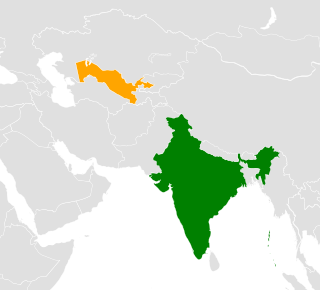
India–Uzbekistan relations are the international relations that exist between the Republic of India and the Republic of Uzbekistan. India has an embassy in Tashkent; Uzbekistan has an embassy in New Delhi.
The History of Indian foreign policy refers to the foreign relations of modern India post-independence, that is the Dominion of India (from 1947 to 1950) and the Republic of India (from 1950 onwards).

Sir Mohammad Abdur Rahman (1888–1962) was a lawyer and judge from Pakistan born in Delhi, India. He served as a representative of the country of India for the United Nations Special Committee on Palestine (UNSCOP) in the summer of 1947.













